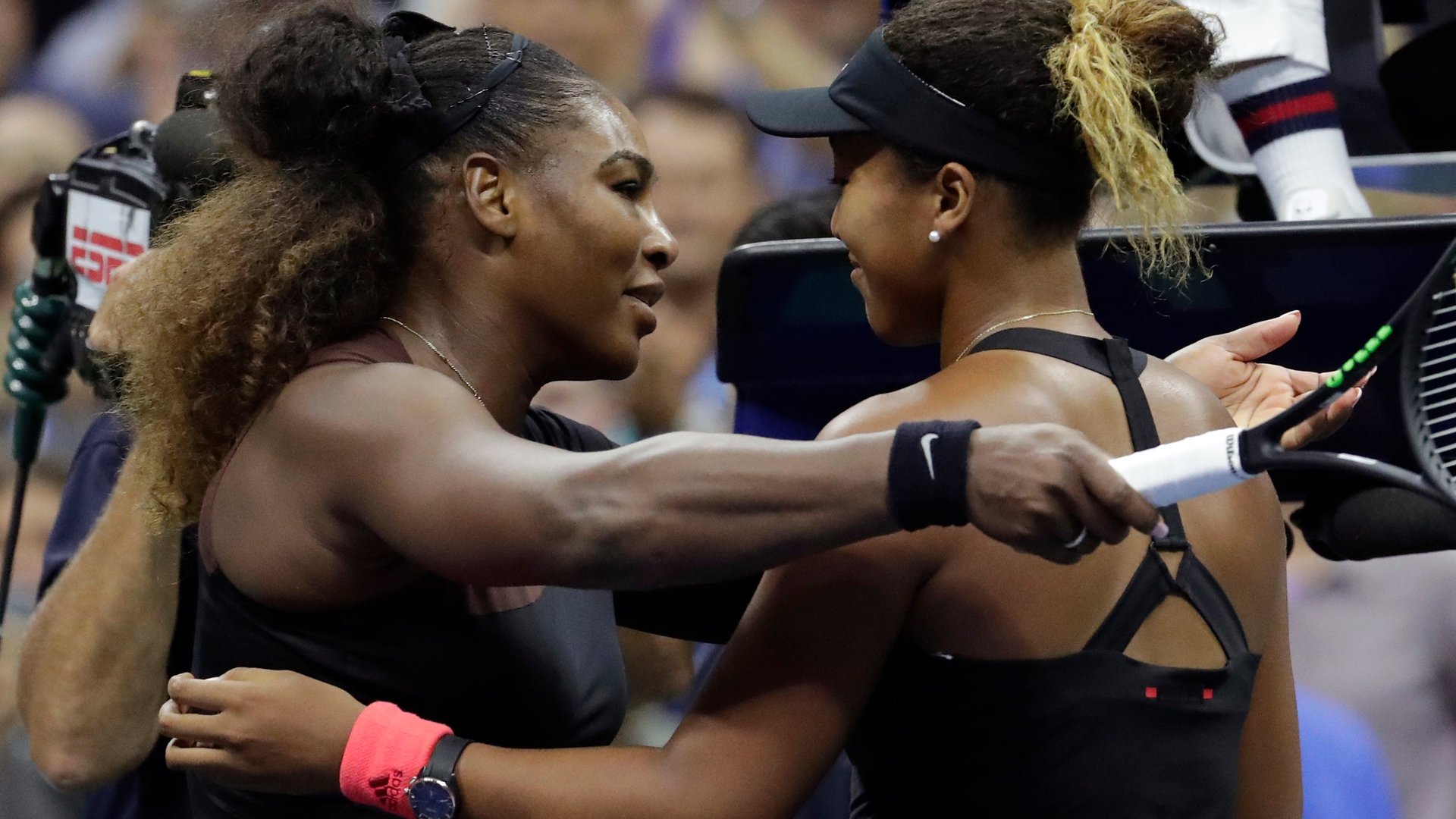Serena Williams, even in defeat, notches a victory for women
My husband isn’t a fan of Serena Williams, and while his cheering for her opponents never much fazed me before, these days it fills me with unspeakable rage.


My husband isn’t a fan of Serena Williams, and while his cheering for her opponents never much fazed me before, these days it fills me with unspeakable rage.
Williams is a 36-year-old woman who exists in a system that wasn’t built for her, who excels at a game that isn’t kind to her, who put her body and indeed her life at risk to have a baby that now depends on her, and is still expected to handle every setback with ease and graciousness, which most of the time she does. (“Everything’s fine, guys,” she said at a press conference after French Open officials banned the catsuit Nike developed for her to help her guard against blood clots.) I can’t understand why more people like my husband aren’t outside right now erecting statues of Williams, let alone able to drum up enough empathy to just cheer her on in a tennis match.
Watching her melt down in the finals of the US Open yesterday (Sept. 8) against 20-year-old Naomi Osaka, I was torn—on the one hand certain her arguing with umpire Carlos Ramos was doing her no favors, and on the other hand appreciative that she was perhaps doing the rest of the world a favor, calling out a perceived injustice against women right as it was unfolding.
A quick recap: Williams, who lost the first set badly and was down in the second, had been given a warning for receiving illegal coaching. After breaking her racquet in frustration, a second code violation, she was given a one-point penalty. This didn’t go over well with the 23-time grand slam champ. “You owe me an apology,” she cried to Ramos. “I have never cheated in my life. I have a daughter and I stand for what’s right for her.”
She was playing the mom card! And why shouldn’t she? Motherhood is an inextricable part of her identity now, not just as a person but as a tennis player. Williams, it has been noted, would be only the fourth mother to win a grand slam in the Open era. The US tournament, we are told, coincided with her baby’s first birthday. (How many fathers have won grand-slam championships? When are Roger Federer’s children’s birthdays? We don’t know, and more than that, we don’t care.)
That Williams’ mind went to her daughter in the midst of an on-court dispute is not surprising. To be a mother to a daughter is to worry that slights against you will someday become slights against her, as you struggle over whether it’s better to raise a girl who is more prepared for the world as it is or for the world that you hope will be. How my husband could know this, and know how I feel about it, and still root against Williams was beyond me. It felt like a personal betrayal. We began to argue, basically mirroring the dispute we had just seen on television, with my husband calmly pronouncing Williams guilty of bad sportsmanship and me getting fairly worked up over his lack of empathy.
The broadcast cut to commercial and the outbursts, both mine and Williams, seemed to be over. I made a promise to myself to not let a difference of opinion over a professional athlete turn into further domestic discord. Argument over. But the drama in center court wasn’t so easily resolved.
At the end of the next changeover, Williams again approached the umpire and accused him of being a thief who “stole” a point from her, at which point he docked her a game.
The anti-Serena camp will say hers were the words of a sore loser and that she deserved to be penalized for it. Others will argue that Ramos exhibited an unusual show of enforcement for a tennis umpire. In any case, as tournament referee Brian Earley and WTA supervisor Donna Kelso came out onto the court to adjudicate, it quickly became apparent that there was something deeper than winning at stake.
“To lose a game for saying that is not fair, I mean, it’s really not,” Williams argued to the officials. “There’s a lot of men out here who’ve said a lot of things [to umpires] and because they are men, it doesn’t happen to them. Because I’m a woman you’re going to take that away from me? I know you can’t change it but it’s not right.”
No, it’s not right. But in professional tennis, as in workplaces in different industries around the world, there are all kinds of double standards for men and women—plus the maddening corollary that a woman must behave like a lady in those moments when she realizes how unjust it all is. Watching Williams cast off those expectations and call out the sexism she’s seen, in the middle of a major tennis championship on national television, felt like a revelation.
Putting our wisdom and experience to use and seeing these discrepancies for what they are is important, but it isn’t enough; we have to be brave enough to point them out to the people around us and to argue for their dismantling. That was Williams’ victory at Flushing Meadows—that and the fact that, after losing the match to Osaka 6-2, 6-4, she pulled it together in time for the on-court trophy presentation. During the post-match interview, Williams eschewed all talk of the drama and simply credited and congratulated her opponent, ensuring Osaka had a chance to savor her grand slam win just as Williams had done so many times before.